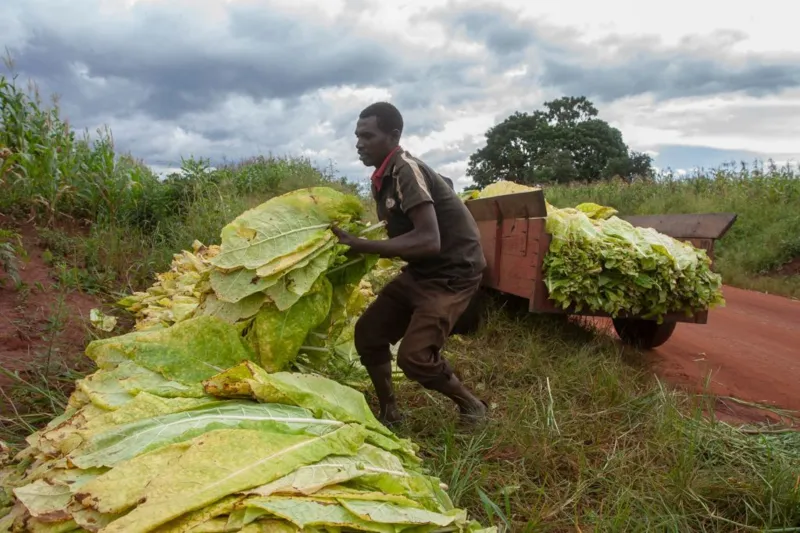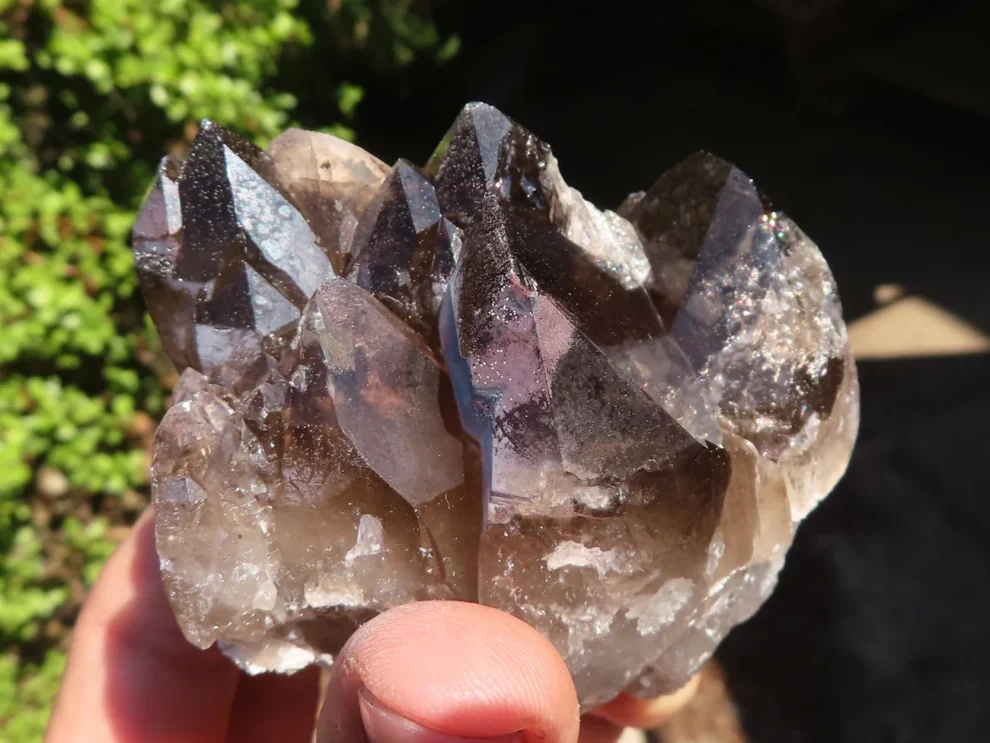Malawi’s government is demanding the astonishing sum of $309bn (£245bn) in unpaid taxes and royalties from a US-based gemstone company for rubies exported from the southern African state over the last 10 years, its attorney-general has told the BBC.
Columbia Gem House, a family-owned business which says that it upholds fair trade practices, dismissed the claim as “baseless and defamatory”.
The government is also demanding $4bn from French gas giant TotalEnergies in unpaid revenue from an oil storage deal, and $9.5m from Turkish tobacco firm Star Agritech, said Attorney General Thabo Chakaka Nyirenda.
TotalEnergies declined to comment while Star Agritech denied owing any money.
The amount being claimed from the three multinationals is nearly 300 times Malawi’s national debt of around $1.2bn, and 22 times its Gross Domestic Product (GDP) of $14bn.
Malawi was forced to take a $174m bailout from the International Monetary Fund (IMF) last year after running into financial trouble.
Speaking to the BBC Focus on Africa podcast, Nyirenda said that Columbia Gem House had been under-reporting the value of rubies it had exported from Malawi.
He added that “some of the evidence that we’ll be using comes from Columbia Gem House itself, such as declarations they have made in the US, and what they have reported on their website, which they have now deleted”.
“The amount is not just [for] one year, it goes over 10 years back. It also includes the interest,” Nyirenda said.
Columbia Gem House said that the government’s sums do not add up.
The $309bn claim “implies Malawi has somehow produced and exported trillions of dollars’ worth of coloured gemstones”, the firm said in a statement.
“They haven’t done this by any stretch of the imagination,” it added.
Columbia Gem House said it does not operate in Malawi, but buys its gemstones from Nyala Mines, a Malawian-owned company in which the government has a 10% stake.
However, Nyirenda told the BBC that as a minority shareholder, the government was not involved in the day-to-day management of the company, and “the name of Nyala Mines had been changed to disguise its ownership”.
An attempt by the US embassy in Malawi to settle the dispute fell through when the attorney general failed to attend an online meeting, which he put down to “technical challenges”.
Mining contributes only 1% to Malawi’s GDP, although the government has announced plans to scale this up in the next few years.
Malawian economist Wisdom Mgomezulu said the government may be making the claims now because of its financial difficulties.
“They’re looking at all potential sources of income, but if you look at the claim versus the size of the economy, it’s just way too much,” he told the BBC.
The dispute with TotalEnergies is rooted in a deal Malawi entered with it in 2001, according to Nyirenda.
The French multinational was to provide fuel to Malawi and was to get tax incentives in return, he said.
The profits from the arrangement were to have been shared equally but TotalEnergies “only paid for two years and stopped paying in 2006”, Nyirenda alleged.
The government has since taken the company to court in Malawi, and Nyirenda said the government wants it to pay $4bn to settle the matter.

As for the dispute with Star Agritech International, the government accuses it of buying three million tonnes of tobacco worth $15m from Malawi through three subsidiaries – registered in Mauritius, Hong Kong, and South Africa – in 2013, but failing to pay for it.
Malawi Leaf Company, the state-owned enterprise that sold the tobacco, took legal action in Hong Kong and won the case, Nyirenda said.
“Over $9.5m was proven in a Hong Kong court,” he said, adding that Malawi wanted Star Agritech International to pay the amount.
He further alleged that the Hong Kong subsidiary of Star Agritech International was established “for the sole purpose of obtaining the tobacco from Malawi”.
In response, Star Agritech International told the BBC that it purchased tobacco worth $5m – not $15m as Malawi claims.
“This is completely wrong and is representative of the type of problems businesses face in dealing in Africa,” said the company’s boss, Iqbal Lambat.
Mr Lambat further claimed that the tobacco shipped was substandard.
“This transaction experienced difficulties as the tobaccos were not one uniform grade but a combination of leftover scrappy tobaccos,” he said.
Malawi is not the only African country that is going after money they say multinational companies owe them.
Last week Mali’s military junta issued an international arrest warrant for Canadian mining firm Barrick Gold’s chief executive officer, alleging the company owes the West African state $500m.
Barrick has responded by threatening to suspend operations in Mali, adding that “local operating conditions have deteriorated significantly with employees imprisoned without cause and gold shipments blocked”.
And in November the junta released the head and two employees of an Australian mining company, Resolute Mining, after a $160m tax dispute was settled.
The firm paid half the money upfront, with a promise to pay the other half in the coming months.









